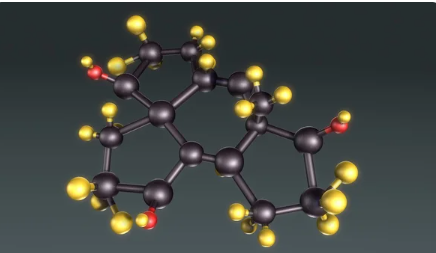Table of Contents
ToggleHormone Harmony: Your Complete Guide to Balancing Hormones Naturally
Hormone harmony is the foundation of your physical, emotional, and mental well-being. When your hormones are in balance, your mood stabilizes, your metabolism functions smoothly, your skin stays clear, and your energy stays consistent throughout the day. Achieving hormone harmony means your body’s systems—powered by the endocrine system—are sending the right signals at the right time.
However, when hormone harmony is disrupted by a hormonal imbalance, even small internal changes can create a ripple effect. You might notice weight gain or loss without reason, mood swings, fatigue, sleep disturbances, or stubborn hormonal acne. These symptoms often point to deeper imbalances involving the endocrine system, thyroid function, or even growth hormone production.
In this guide, we’ll explore what hormones are, how the endocrine system works, and why achieving hormone harmony is essential for long-term health. You’ll learn natural strategies for how to balance hormones, when hormone therapy might be necessary, and how lifestyle habits—like nutrient-rich meals, restorative sleep, and stress reduction—can help you maintain hormone harmony for life.
What Are Hormones?

Hormones are chemical messengers that travel through your bloodstream, delivering instructions to your organs and tissues. They regulate essential processes such as:
Metabolism and energy production
Reproductive cycles
Stress responses
Sleep patterns
Growth and development
Produced by glands in the endocrine system, hormones influence almost every cell in your body. When functioning well, they work in perfect synergy—a true state of hormone harmony.
The Endocrine System: Your Hormonal Headquarters
The endocrine system is made up of glands like the thyroid, pituitary, adrenal, and pancreas. Together, they control hormone production and release. Key glands include:
Pituitary gland – The “master gland” that controls other hormone-producing glands
Thyroid gland – Regulates metabolism and energy
Adrenal glands – Manage stress and control cortisol levels
Ovaries/Testes – Regulate reproductive hormones
Pancreas – Balances blood sugar with insulin and glucagon
When any part of this system misfires, it can lead to hormonal imbalance—affecting your skin, mood, weight, and even your ability to sleep.
Signs of Hormonal Imbalance
When hormone harmony is disrupted, your body often sends out warning signals. These symptoms can range from subtle shifts to life-disrupting changes:
Fatigue and brain fog – Feeling drained even after a full night’s sleep.
Sudden weight gain or loss – Changes in metabolism that don’t match your eating or activity level.
Irregular menstrual cycles – Skipped periods, unpredictable flow, or painful cramps.
Mood swings or anxiety – Emotional highs and lows tied to chemical imbalances in the brain.
Hormonal acne – Breakouts along the jawline, chin, or back.
Sleep disturbances – Difficulty falling or staying asleep, or waking too early.
Low libido – Reduced sexual drive or desire.
These signs suggest your body’s natural rhythm is out of sync. The upside? Many imbalances can be corrected through lifestyle, diet, and targeted wellness habits—without relying solely on medication.
Hormonal Acne: A Skin-Deep Sign of Imbalance
Hormonal acne isn’t just a cosmetic concern—it’s a visible indicator of deeper imbalances. It commonly appears:
Along the jawline and chin
Around the neck
Before menstruation or during hormonal milestones like puberty, pregnancy, or menopause
The culprit is often fluctuating androgen levels, which increase sebum (oil) production. Excess oil clogs pores, creating the perfect environment for breakouts.
Balancing hormones naturally can dramatically reduce these flare-ups. This means:
Supporting hormone harmony through nutrient-dense meals
Reducing stress triggers that spike cortisol
Following a skincare routine with gentle, non-toxic products
How to Balance Hormones Naturally
Achieving hormone harmony takes a whole-body approach—addressing nutrition, movement, sleep, and environmental factors.
1. Prioritize Nutrient-Dense Foods
Include healthy fats like avocado, nuts, olive oil, and fatty fish to aid hormone production
Choose high-quality protein (eggs, legumes, lean meats) to stabilize blood sugar
Fill your plate with colorful vegetables for antioxidants and phytonutrients that support the endocrine system
2. Manage Stress Levels
Chronic stress overstimulates the adrenal glands, raising cortisol and throwing off other hormones like estrogen and testosterone.
Try mindfulness meditation
Practice yoga or tai chi
Use deep breathing to activate your body’s relaxation response
3. Get Quality Sleep
Your body uses sleep to regulate hormones—especially growth hormone and melatonin. Poor rest affects everything from mood to metabolism.
Aim for 7–9 hours nightly
Keep a consistent bedtime
Limit blue light from screens before bed
4. Exercise Wisely
Too much intense training can spike stress hormones.
Mix strength training for muscle support
Add moderate cardio for heart health
Incorporate restorative movement like stretching or Pilates
5. Avoid Endocrine Disruptors
Synthetic chemicals in plastics, cosmetics, and cleaning supplies can mimic or block hormones.
Switch to glass or stainless steel containers
Use natural personal care products free from parabens and phthalates
Opt for eco-friendly cleaning solutions

Hormone Therapy: When Nature Needs a Boost
Sometimes, even with the best lifestyle habits, your body might still struggle to achieve hormone harmony on its own. That’s when hormone therapy can play an important role. This medical approach involves supplementing or replacing deficient hormones to restore balance.
Hormone therapy is often recommended for:
Women experiencing menopause or severe perimenopausal symptoms
Men with low testosterone levels
Individuals with thyroid disorders like hypothyroidism or hyperthyroidism
While hormone therapy can be highly effective, it’s not a “one-size-fits-all” solution. Your hormonal needs are unique, and treatment should always be customized based on comprehensive lab testing and supervised by a healthcare professional. Regular monitoring ensures the therapy is safe, effective, and aligned with your body’s natural rhythms.
The Role of Growth Hormone
Growth hormone is one of your body’s most vital messengers, influencing everything from metabolism and cell repair to muscle strength and bone density. It’s produced by the pituitary gland, but natural production declines with age—often contributing to slower recovery, fatigue, and decreased muscle tone.
To naturally support growth hormone levels and maintain hormone harmony:
Get consistent, deep sleep—most growth hormone release occurs at night during slow-wave sleep.
Engage in resistance training and short bursts of high-intensity exercise.
Eat a balanced diet with adequate protein and healthy fats.
By nurturing growth hormone production, you not only slow age-related decline but also give your overall hormonal health a powerful boost.
Daily Habits for Lasting Hormone Harmony
Hormone balance isn’t built overnight—it’s the result of consistent, mindful choices. Incorporate these daily habits to maintain hormone harmony long-term:
Start with a protein-rich breakfast to stabilize blood sugar and prevent mid-morning crashes.
Limit sugar and refined carbs to avoid insulin spikes that disrupt the endocrine system.
Stay hydrated with clean, filtered water to aid in hormone transport and detoxification.
Take regular screen breaks to reduce stress hormones triggered by constant digital stimulation.
Practice gratitude and mindfulness—lowering cortisol through emotional well-being can help all other hormones fall into place.
These habits work synergistically to protect your hormonal health, prevent hormonal imbalance, and promote overall wellness.
When to Seek Professional Help
If you notice persistent symptoms such as fatigue, sudden weight changes, mood swings, irregular cycles, or hormonal acne, it’s important not to dismiss them as “normal.” These could be signs of an underlying hormonal imbalance.
A qualified healthcare provider can order blood tests, saliva tests, or hormone panels to assess your levels and identify specific deficiencies. From there, you can work together on a tailored plan that might include dietary changes, supplements, stress management, or hormone therapy if necessary.
Final Thoughts
Hormone harmony is more than just avoiding unpleasant symptoms—it’s the cornerstone of vibrant health, sustained energy, glowing skin, and emotional resilience. When your hormones work in perfect sync, every system in your body—from digestion and metabolism to mood regulation and reproduction—functions at its best.
By learning what hormones are, how they interact within the endocrine system, and the ways they influence everything from sleep to skin health, you gain the power to take control of your well-being. Supporting your body through balanced nutrition, stress management, and mindful living is the most natural path to restoring equilibrium.
For many people, simple lifestyle changes are enough to address issues like hormonal imbalance or hormonal acne. But when symptoms persist—such as chronic fatigue, mood swings, or irregular cycles—it’s worth exploring options like hormone therapy under the guidance of a healthcare professional. In some cases, targeted treatments, including support for growth hormone production, can be life-changing, helping restore vitality, strength, and confidence.
The secret to lasting hormone harmony is consistency. Small daily choices—like eating nutrient-dense meals, engaging in regular movement, prioritizing restorative sleep, and practicing emotional care—build over time, creating a ripple effect that supports your hormonal health and your overall quality of life.
Remember, your hormones are your body’s most powerful chemical messengers. When they are balanced, your body can maintain a healthy weight, regulate mood, keep your skin clear, and support long-term wellness. By focusing on how to balance hormones naturally, protecting your endocrine system from disruptors, and making intentional, health-focused decisions, you’re giving yourself the gift of true, lasting balance.
Start today—because the journey to hormone harmony is also the journey to your best, healthiest, and most confident self.
